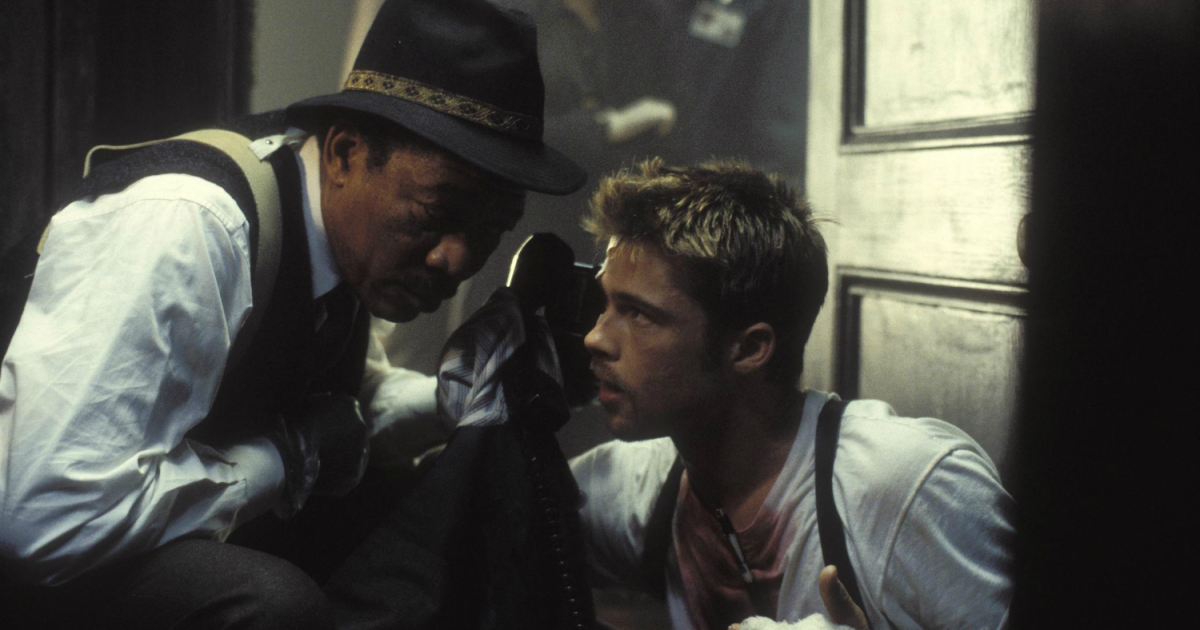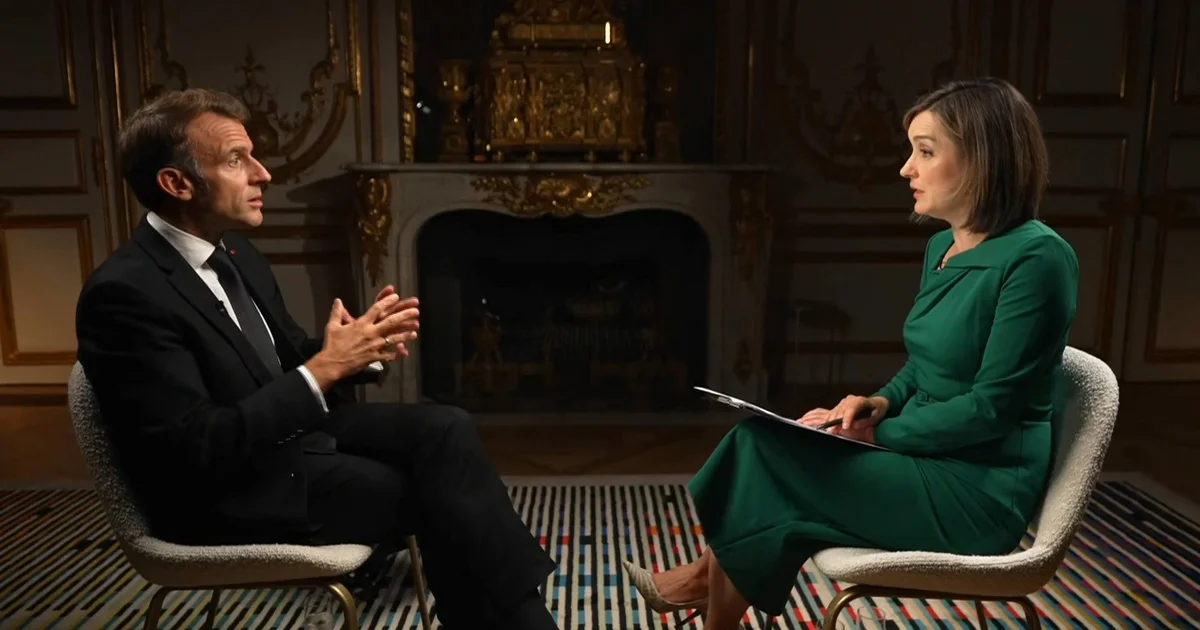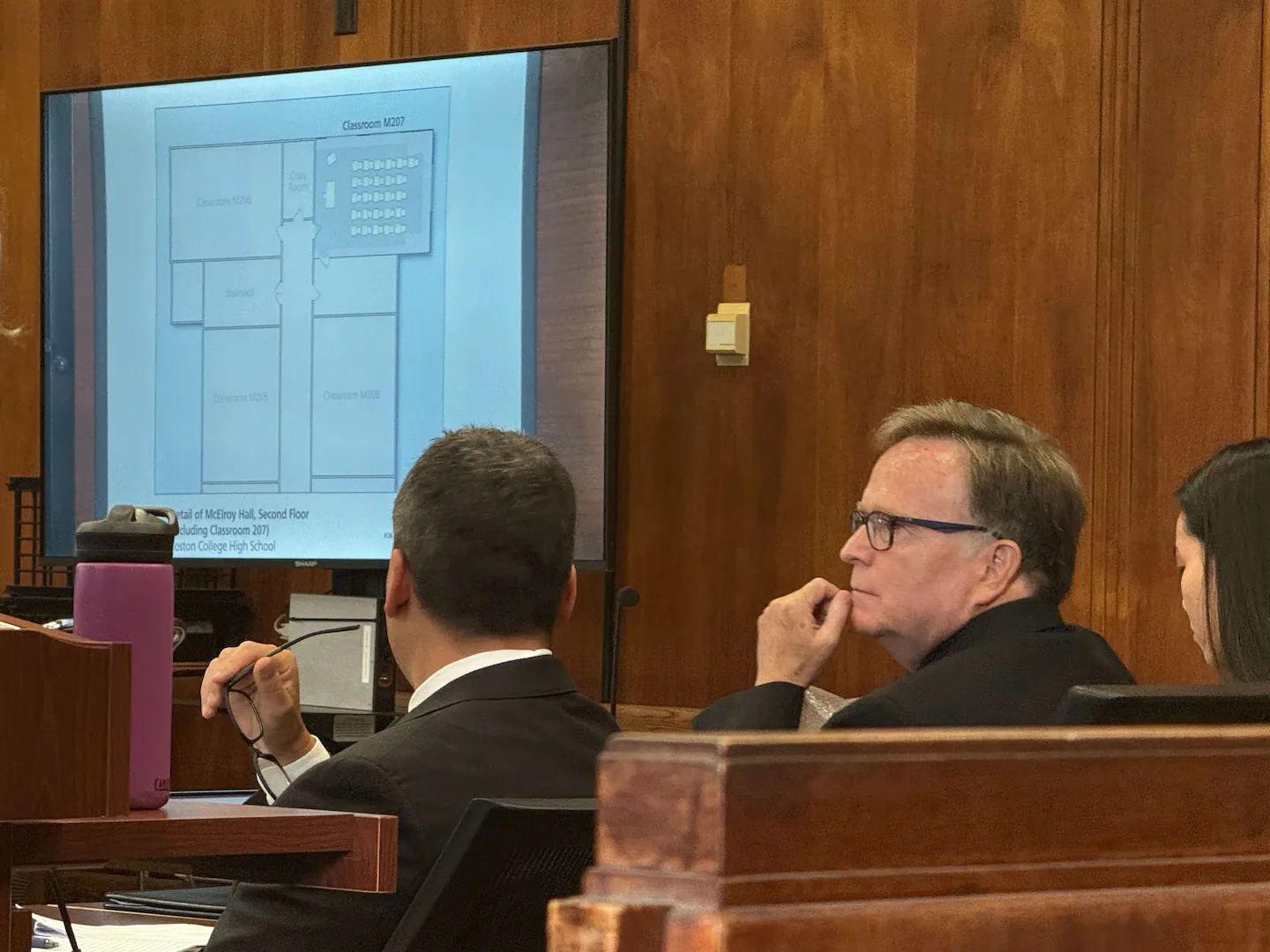
Thirty years ago, after the divisive turnout of Alien 3, director David Fincher released his true breakout film in 1995: Seven. Based on a script by Andrew Kevin Walker, Seven presents Brad Pitt (F1) and Morgan Freeman (Now You See Me: Now You Don’t) as police detectives Somerset and Mills, who pursue serial killer John Doe (Kevin Spacey) in an unnamed city as he commits murders modeled after the Seven Deadly Sins.
With his second feature-length film, Fincher and his production team delivered one of the greatest crime movies in cinema history. As its protagonists investigate grisly killings in an already crime-ridden city, the movie sends its viewers on an unrelenting voyage into the dark side of humanity. Though Fincher directed many other acclaimed movies like Fight Club, The Social Network, Zodiac, and Gone Girl, Seven remains at the top of his filmography as a thoughtful and timeless masterpiece.
Seven is a haunting, thought-provoking story
Seven‘s narrative blurs the lines between a dark crime thriller and a straight-up horror movie. The film burns audiences’ minds with gruesome images of John Doe’s murders, making it tough for some to swallow.
Recommended Videos
Such murders involve a man being force-fed spaghetti until his stomach bursts, a man being starved almost to death for a whole year, and a man being forced to assault a woman with a bladed strap-on. While Doe isn’t shown committing these murders, the gory and traumatizing results of his deeds are more than terrifying enough.
Aside from some bits of humor and some heartwarming exchanges between Somerset, Mills, and Tracy, much of the movie’s joy and optimism gets snuffed out by the horrible acts of John Doe. Through his actions, Seven unleashes a cunning, meticulous, and frightening figure on par with Hannibal Lecter.
Despite such little screen time, Spacey delivered one of the most chilling and memorable performances of his career. Though Doe is an immoral and sadistic killer, he raises some interesting points about the moral bankruptcy of society.
Like many great horror movies, Seven stands out for its brutal commentary on reality, specifically on how widespread human depravity is. Doe’s stylized murders highlight how people have become indifferent to each other and the sins they witness in their everyday lives.
The protagonists can’t help but see shreds of truth in Doe’s wicked philosophy. They have seen how common and accepted sin was in their city. Somerset was already so disillusioned by the amount of crime and corruption he had witnessed that he was hoping to cut himself off from it all by retiring. Even Mills’ wife, Tracy (Gwyneth Paltrow), is unsure about having a baby while living in such a bleak and dangerous world.
Seven presents an unnerving and stylish world
David Fincher proves he is a master at building a tense, foreboding, and thrilling film in Seven. The film hooks its audience right from the beginning with its iconic opening credits sequence. As John Doe is shown writing his journals, arranging photos, and slicing his fingertips, the movie gives audiences an unsettling but intriguing glimpse into his wicked schemes.
Working with cinematographer Darius Khondji (Eddington), Fincher succeeds in crafting a bleak but visually stunning neo-noir world. Furthermore, composer Howard Shore delivers a chilling and booming original score to elevate this intense film, just like he did with The Silence of the Lambs.
As the detectives explore dark, disgusting crime scenes, audiences get the impression that they’re venturing into the depths of Hell itself in this unnamed metropolis, befitting the story’s religious symbolism. Since this film’s setting is unclear, Seven makes it easier to imagine this story happening anywhere at any time, making it especially frightening.
This unnamed city also seems trapped in a perpetual rainstorm, all but drowning the characters in a dreary, oppressive environment. It is only at the end that the characters are brought out of the rain into the light. As the detectives venture out with Doe into a hot, barren desert, Seven sets the stage for a small but Biblical battle of human morality.
The film’s ending is still mind-shattering
Just like with The Usual Suspects, Spacey’s character in Seven unleashed an iconic twist ending by mailing a simple package to Mills. Even without showing what’s in the infamous box, Seven burns its finale into viewers’ minds by revealing that Doe had killed Tracy.
Pitt’s clunky acting may have thrown off this scene a bit, but it doesn’t make this finale any less shocking or heartbreaking. By making Mills kill him for Tracy’s death, Doe won in the end by turning the former into the embodiment of wrath, completing his “masterpiece.”
Essentially, Doe took a page from the Joker’s book by showing how “one bad day” can make someone like Mills take a turn for the worse. Mills had mocked Doe for his heinous actions earlier in the film. However, Doe wisely pointed out before that the only thing preventing Mills from killing him before was the consequences. Without Tracy in his life, there was nothing stopping Mills from murdering Doe and going to jail.
Even after everything that has occurred, Seven delivers a glimmer of hope in the end. Somerset’s final voiceover asserts that the world is worth protecting, despite how terrible it is. This conveys his character’s renewed determination to protect his city as a detective, refusing to retire and continuing his work.
Ultimately, Doe’s crimes weren’t part of some “movie of the week,” as Mills had described. In the span of seven days, Doe unleashed seven murders that shocked audiences and held a mirror up to themselves, forcing them to look at the darkness that humanity has spread and grown accustomed to.
Just like Doe foretold, audiences haven’t been able to forget Seven or its haunting narrative in the 30 years since its release. With the extraordinary acclaim received by his film, David Fincher launched his career as one of cinema’s greatest directors. But even after all the great films he’s made, none of them have aged quite as well as Seven.



